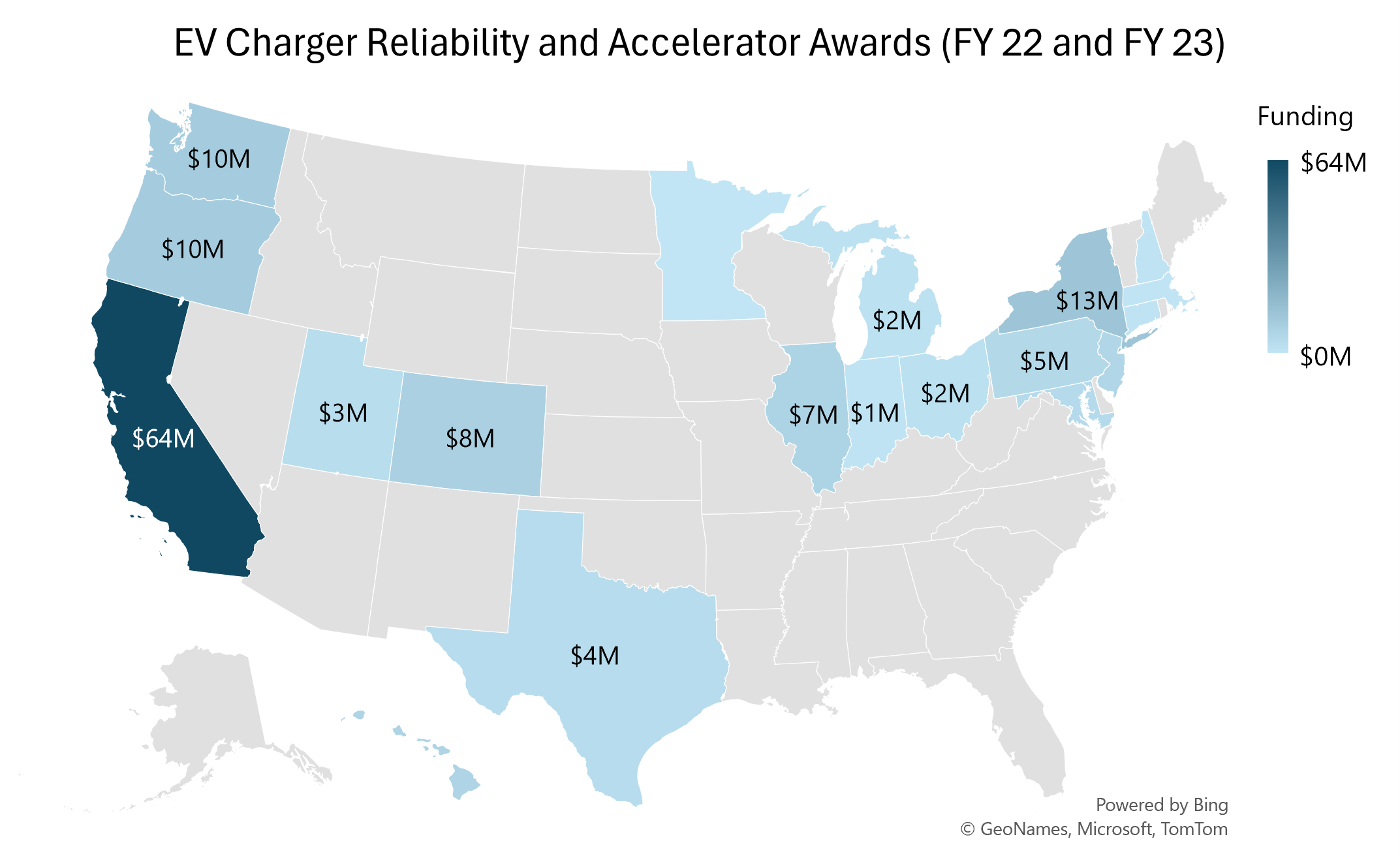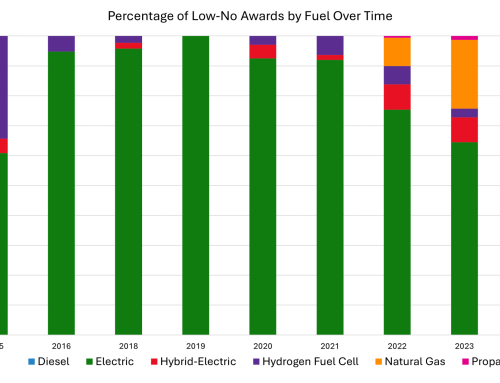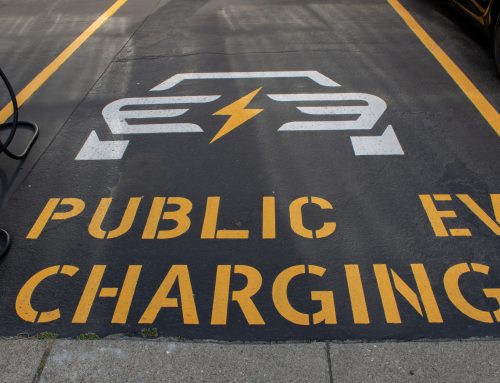
Last month, the Federal Highway Administration (FWHA) announced the grant recipients for the first round of the Electric Vehicle (EV) Charger Reliability and Accessibility Accelerator Grant Program.
To give a refresher, funds for the EV Charger Reliability and Accessibility Accelerator come from the National Electric Vehicle Infrastructure (NEVI) program. While the majority of NEVI funding is being distributed to states via formula, ten percent (nearly $470 million) is set-aside for the Secretary of Transportation “to make grants to States and localities that require additional assistance to strategically deploy electric vehicle charging infrastructure.” As we covered in a previous digest, the FHWA dedicated the first $100 million to repair and replace existing chargers.
The FHWA awarded $148.8 million to 24 projects spanning 20 states to repair or replace broken or non-operational electric vehicle charging ports to improve the reliability of existing charging infrastructure. These funds will repair or replace nearly 4,500 existing EV chargers across the country, or upgrade them to meet NEVI standards.
The California Department of Transportation (Caltrans) took home the most funding, receiving nearly $64 million in funds to upgrade 1,302 ports across 300 sites statewide. According to the press release, Caltrans partnered with EV charging providers in the state “to develop a list of chargers to fix and upgrade to national charging standards within the program timeline.” The agency will partner with the California Energy Commission to implement this funding.
California’s neighbors to the north, Washington and Oregon, also received considerable funding from the first round of this program, boosting the reliability of EV chargers throughout the entire West Coast. The Washington State Department of Transportation and the Oregon State Department of Transportation each received approximately $10 million in federal funds to upgrade 560 and 421 chargers, respectively.
New York State was awarded $13 million in funding to improve the reliability of 335 chargers throughout the state, the second highest funding award next to California. The New York State Department of Transportation (NYSDOT) will administer the funding with the New York State Energy Research and Development Authority (NYSERDA), which will enter sub-agreements with charger providers that own charging stations. NYSERDA’s sub-agreements will require that stations that receive funding under this program must be functional within 12 months of the award to NYSDOT. In addition, the stations must be operational for a minimum of five years.
Furthermore, a fair share of regional and local agencies received funds to upgrade chargers in their jurisdictions. In Texas, the North Central Texas Council of Governments (NCTCG) was awarded $4 million to upgrade nearly 200 chargers, and in the Midwest, the Mid-Ohio Regional Planning Commission will be receiving $2 million. Several cities in the Midwest also received funding, however on a much smaller scale.
There were also some notable gaps. In particular, the Southeast did not receive any awards through this initial funding round despite high levels of charger unavailability. For example, seven percent of chargers across North Carolina, South Carolina, Georgia, and Florida were listed as unavailable when the grant application was issued, higher than most states.
These funds are issued at a critical juncture of the EV charging industry, where reliability concerns remain a top concern. This set aside from the NEVI program will be available through Fiscal Year 2026, so there may be more opportunities to enhance EV charging reliability in regions with high levels of unavailability such as the Southeast.


